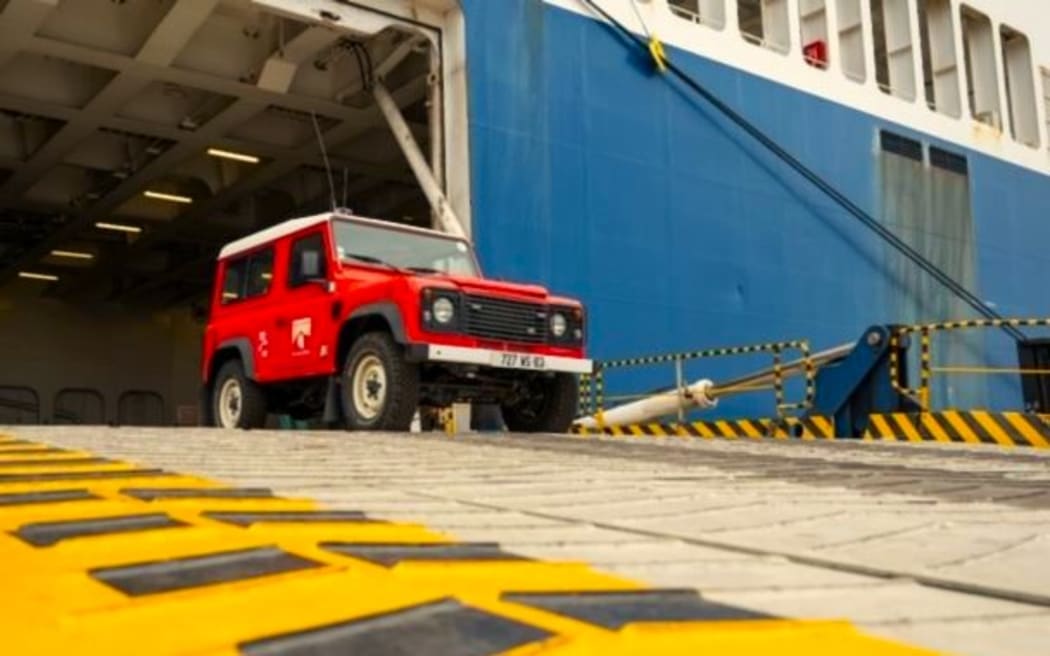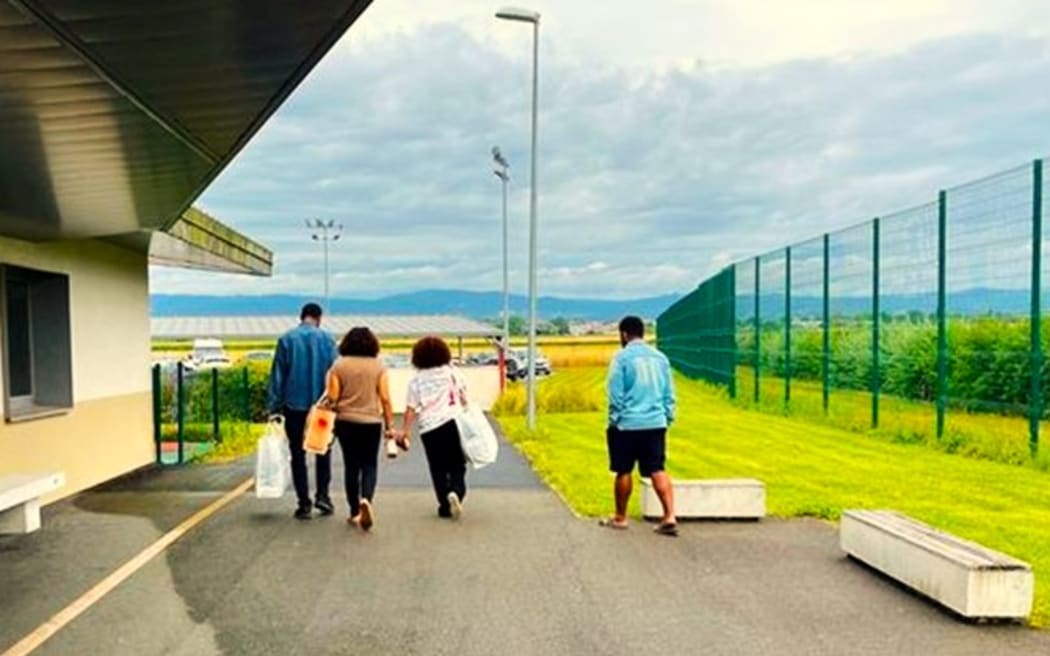By Patrick Decloitre, RNZ Pacific correspondent French Pacific desk
More armoured vehicles and firetrucks have been delivered for Kanaky New Caledonia’s security forces, including police and firemen.
The France-freighted shipment consignment arrived aboard a cargo vessel, the Calao, the French High Commission announced on Thursday.
It contained 10 more armoured vehicles for the security forces, as well as 15 other vehicles said to benefit local firefighters.
- READ MORE: A surprising litmus test for Kanaky New Caledonia’s independence parties
- Other Kanaky New Caledonia crisis reports
The fire-fighting trucks will be delivered to the local Civil Security department.
“This is to pursue efforts to secure [New Caledonia] . . . It will be used to renew or replace equipment that has been damaged, including trucks and armoured vehicles,” French High Commissioner in New Caledonia Louis Le Franc said during a media briefing.
The 10 new armoured vehicles, known as Centaur, will be added to six others that were already deployed in New Caledonia since last month.
On board the same vessel, another batch of light armoured vehicles, dedicated to “exploration”, are described as bearing “reinforced windows” to protect passengers against bullets.
While efforts are ongoing to remove the numerous roadblocks in Nouméa and its suburbs, in the Northern Province, three French gendarmes have been injured and sustained bone fractures after their car was targeted and hit by a vehicle used by rioters, the French High Commission said.

One of the gendarmes has since been medically evacuated.
The incident took place in Houaïlou, in the north of the main island of Grande Terre.
Earlier incidents, especially in urban areas, involved home-made Viet Minh-like traps such as manhole covers being removed and dissimulated under branches, while sharp iron rods had been sealed inside the hole.
Several gendarmes who were tricked and fell into the hidden hole suffered serious injuries to the legs.
In other instances, especially on the roadblocks where French security forces are still trying to clear traffic access, gas bottles have been converted into explosive devices after being fitted with homemade remote-controlled detonators.
Saint Louis church presbytery destroyed by fire
Over the past few days, another hot point has been the village of Saint Louis, in the township of Mont-Dore (near Nouméa), where one rioter was killed earlier this week after firing gunshots to the gendarmes, who later retorted.
The death toll from the unrest is now 10.
On Thursday night, Saint Louis’s Catholic Mission, which had been set up in 1860 by the Marists, was set on fire and the presbytery (which had been occupied by rioters for the past few days) has been completely destroyed.
The Marist Brothers and Sisters had earlier been evacuated by French security forces.
Violent unrest has been ongoing in New Caledonia since mid-May, when riots, looting, arson, broke out.
This was initially in protest against a French government project to amend the Constitution and modify the rules of eligibility for local elections, a change perceived by the pro-independence movement as a bid to dilute the political strength of indigenous Kanak voters.
The riots, the worst since a quasi civil war erupted during the second half of the 1980s, have since caused the deaths of eight civilians and two French gendarmes.
Several hundred businesses and private residences were also set on fire and destroyed, for a total cost of some 2.2 billion euros (NZ$3.9 billion), according to the latest estimates.
As a result, several thousand employees have lost their jobs.
Two indicted women released – in home detention

Last month, a group of pro-independence activists was indicted and flown to metropolitan France, where they are now serving pre-trial detention in several jails.
They are facing a range of charges, revolving around allegations of “organised crime”.
The arrests prompted a fresh upsurge in violence.
Last Wednesday, the only two women in the group, Frédérique Muliava (chief-of-staff of pro-independence figure and New Caledonia Congress President Roch Wamytan) and Brenda Wanabo (described as communications officer of the controversial pro-independence “CCAT” – field actions coordination cell) have been allowed to leave their jail, located respectively in Riom (near Clermont-Ferrand) and Dijon (eastern France).
Pending their trial before a French court, the two will however remain under home detention in the same cities and wearing electronic monitoring bracelets.
This article is republished under a community partnership agreement with RNZ.
This post was originally published on Asia Pacific Report.